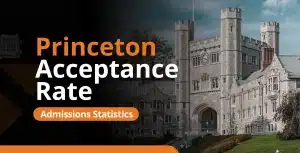The Ultimate Guide to Winning at the USA Computing Olympiad (USACO)
Getting into a top university or your dream college is more competitive than ever. Colleges now look beyond just a good resume, high grades, or a high GPA. Admissions officers want to see a mix of strong academics and enriching extracurricular activities. These activities can include outstanding summer programs, academic competitions, volunteer programs, and internships in a field you are passionate about. Participating in programs like the USA Computing Olympiad or USACO can enhance your college application by demonstrating your commitment and expertise in specific areas.
What is the USA Computing Olympiad (USACO)?
The USA Computing Olympiad (USACO) is an annual contest that tests your skills in programming, algorithm development, and problem-solving. The competition has four levels: Bronze, Silver, Gold, and Platinum. Each level gets tougher and covers a wider range of topics. The contest is held online, and you usually have a 3-5 hour window over a few days to complete it.
If you perform well in the USACO, you might be invited to a training camp. There, you can qualify to represent the United States at the International Olympiad in Informatics (IOI) or the European Girls Olympiad in Informatics (EGOI)—both are prestigious international programming contests.
The USACO is recognized globally as one of the top programming competitions for high school students. It offers a great opportunity to showcase your programming skills, gain public recognition, and earn awards for your expertise in computer science.
How does the USA Computing Olympiad (USACO) work?
The USA Computing Olympiad (USACO) is an annual series of online contests that challenge you in programming, algorithm development, and problem-solving. The competition has four divisions:
- Bronze
- Silver
- Gold
- Platinum
Each level gets tougher as you progress. You start in the Bronze division and can advance based on your performance.
Each contest lasts 3-5 hours and must be completed within a few days of its release. You submit your solutions online, where they are automatically evaluated for correctness and efficiency. USACO provides extensive training materials and resources to help you improve your skills.

Top performers are invited to a training camp. There, you can qualify to represent the United States at the International Olympiad in Informatics (IOI) or the European Girls Olympiad in Informatics (EGOI).
Contest Divisions
The USACO consists of four contests, each divided into four levels: Bronze, Silver, Gold, and Platinum. Everyone starts in the Bronze division. By scoring high, you can advance to higher divisions. If you excel in a contest, you’ll move up to the next division for the next round. Achieving a perfect score allows you to compete twice in one weekend, with your second attempt in the new division.
The following table breaks down the topics covered in each division. Note that the coverage can change anytime. We recommend that you check the USACO guide webpage regularly for any changes.
| Divisions | Topics Covered |
| Bronze | Simulation, Rectangle Geometry, Introduction to Data Structures, Basics of data structure, pairs, tuples, etc., Introduction to Graphs, Basic Complete Search, (dynamic) arrays. |
| Silver | Binary Search, Greedy Algorithms with Sorting, Depth First Search (DFS), Introduction to Tree Algorithms, Operations on Sorted Sets, Introduction to Prefix Sums, Custom Comparators and Coordinate Compression, etc. |
| Gold | Breadth First Search (BFS), Introduction to DP, Divisibility, Point Update Range Sum, Sliding Window, Modular Arithmetic, Combinatorics, Shortest Paths with Non-Negative Edge Weights, Disjoint Set Union, etc. |
| Platinum | Convex Hull Trick, Matrix Exponentiation, More Applications of Segment Tree, Sparse Segment Trees, Binary Jumping, Range Queries with Sweep Line, Convex Hull, etc. |
The USACO Training Camp and the International Olympiad in Informatics
The USACO Training Camp is an intensive program designed to prepare top-performing students from the USA Computing Olympiad (USACO) for international competitions like the International Olympiad in Informatics (IOI) and the European Girls Olympiad in Informatics (EGOI). Held annually over two weeks at a university or similar institution, the camp selects participants based on their performance in USACO contests. This year the camp will be hosted by Clemson University.
The training camp uses an intensive curriculum that covers advanced topics in computer science and competitive programming, including algorithms, data structures, and problem-solving techniques. You’ll attend lectures and workshops led by experienced instructors and former competitors, and engage in practice contests that simulate international competition conditions.
Your performance will be closely monitored throughout the camp. Based on their scores and problem-solving abilities, the best students are selected to represent the United States at the IOI and EGOI. The camp enhances your programming skills and offers networking opportunities with peers and recognition that can boost your academic and career prospects.

USACO covers the expenses for the USACO training camp, although participants are encouraged to fund their transportation to the camp if possible. For the IOI, USACO pays for all expenses, including transportation.
Important Dates:
- Training Camp: May 23 – June 1, 2024
- European Girls Olympiad in Informatics: July 21 – 27, 2024 (The Netherlands)
- International Olympiad in Informatics: September 1 – 8, 2024 (Egypt)
Who is eligible to join the USACO?
Anyone can join the USA Computing Olympiad! The competition is open to all, though most participants are middle and high school students. However, only pre-college students are eligible to qualify for the IOI or EGOI.
To be eligible for selection as a USACO finalist and ultimately as an IOI team member, here are the key requirements:
- Must be enrolled in a high school (or junior high/middle school) for at least one semester in the school year before the IOI.
- Can concurrently take courses at other institutions, including colleges and universities.
- Must be either a US citizen or a resident of the USA during the first half of the school year.
- IOI team members from other countries are not eligible to be USACO finalists, including those with commitments to other countries that could lead to their selection for an IOI team prior to the USACO camp.
- Must excel in USACO web-based contests throughout the year.
- Coaches may drop one contest when averaging scores and determining trends, but missing several contests decreases the likelihood of being chosen.
- Senior-year students and finalists from previous years face stricter criteria for selection than younger students.
Frequently Asked Questions about the USACO
1. Is the USACO prestigious?
Yes, the USA Computing Olympiad (USACO) is highly prestigious and is recognized nationwide as one of the top competitive programming competitions for high school students. Top performers in USACO can represent the United States at esteemed international competitions like the International Olympiad in Informatics (IOI) and the European Girls Olympiad in Informatics (EGOI).
USACO’s high standards and the opportunities it provides for skill development and recognition make it a prestigious competition for high school students passionate about computer science.
2. Are there costs involved in joining the USACO?
No, there are no costs involved in joining the USA Computing Olympiad (USACO). Participation in USACO contests is free, allowing students from all backgrounds to compete and develop their skills in programming and algorithm development without financial barriers. This accessibility is part of what makes USACO a widely respected and inclusive competition.
3. Can I still join the USACO even if I already joined before?
Yes, you can participate in the USA Computing Olympiad (USACO) even if you’ve competed before. There are no restrictions on rejoining. In fact, many students participate in multiple contests over several years to improve their skills and advance through the competition’s divisions. Continuous participation helps you gain more experience, improve your performance, and potentially qualify for higher-level competitions and training camps.

4. Is USACO good for building my college admissions resume?
Yes, participating in the USA Computing Olympiad (USACO) is excellent for building your college admissions resume. Here’s why:
- Demonstrates Skills: Excelling in USACO showcases your strong skills in programming, algorithm development, and problem-solving, which are highly valued in fields like computer science and engineering.
- Shows Commitment: Consistent participation and improvement in USACO demonstrate dedication and a commitment to honing your skills over time—qualities that are attractive to college admissions committees.
- Achievement Recognition: Performing well in USACO is a notable achievement that can set you apart from other applicants. It reflects your ability to succeed in a competitive, intellectually challenging environment.
- Opens Opportunities: High performers in USACO may be invited to prestigious training camps and have the chance to represent the United States in international competitions, further enhancing your resume.
- Scholarships and Internships: Your success in USACO can lead to scholarships and internship opportunities in the tech industry, providing further evidence of your capabilities and potential to college admissions officers.
5. Is the US a strong team at the International Olympiad for Informatics?
Yes, the United States is considered a strong team at the International Olympiad in Informatics (IOI). The US team has consistently performed well, winning a total of 34 gold, 62 silver, and 36 bronze medals. This success comes from a highly competitive selection process.
The US team benefits from significant support and resources, including guidance from experienced coaches and former IOI participants. Many past participants have gone on to achieve great success in both academic and professional fields. The combination of intensive selection, high-quality training, and strong support ensures that the US remains a formidable team at the IOI.

What computing courses or subjects should I be doing to prepare for the USA Computing Olympiad?
| Core Subjects | Coverage |
| Programming Fundamentals | Learn a programming language commonly used in competitive programming (e.g., C++, Java, Python).
Focus on mastering syntax, data types, control structures, functions, and basic input/output operations. |
| Data Structures | Arrays, Linked Lists, Stacks, Queues
Trees (Binary Trees, Binary Search Trees, AVL Trees) Graphs (adjacency list and adjacency matrix representations) Heaps, Hash Tables |
| Algorithms | Sorting and Searching (e.g., QuickSort, MergeSort, Binary Search)
Recursion and Backtracking Dynamic Programming (e.g., knapsack problem, longest common subsequence) Greedy Algorithms |
| Graph Algorithms | Depth-First Search (DFS) and Breadth-First Search (BFS)
Shortest Path Algorithms (e.g., Dijkstra’s, Bellman-Ford) Minimum Spanning Tree (e.g., Kruskal’s, Prim’s) Topological Sorting |
| Advanced Topics | Coverage |
| Advanced Data Structures | Segment Trees and Fenwick Trees
Disjoint Set Union (Union-Find) Sparse Tables |
| Advanced Algorithms | Binary Search on Answer
Dynamic Programming Optimization Network Flow Algorithms (e.g., Ford-Fulkerson) |
| Mathematics for Computing | Number Theory (e.g., modular arithmetic, prime numbers)
Combinatorics (e.g., permutations, combinations) Probability and Statistics (basic concepts useful for certain algorithmic problems) |
| Problem-Solving Techniques | Practice competitive programming problems on platforms like Codeforces, LeetCode, and HackerRank.
Study past USACO problems and solutions to understand the types of problems asked and their solutions. |
Recommended Courses
- Introduction to Computer Science: Many universities offer introductory courses that cover the basics of programming and problem-solving.
- Data Structures and Algorithms: Courses that delve into the implementation and application of various data structures and algorithms.
- Discrete Mathematics: Provides a mathematical foundation for computing, covering topics like logic, set theory, and graph theory.
- Competitive Programming: Some online platforms offer specialized courses focused on preparing students for competitive programming contests.
Practice and Resources
- USACO Training Pages: Utilize the training resources available on the USACO website.
- Online Coding Platforms: Regularly practice problems on platforms such as Codeforces, AtCoder, TopCoder, and LeetCode.
- Books: Reference books like “Introduction to Algorithms” by Cormen, Leiserson, Rivest, and Stein, and “Competitive Programming” by Steven Halim and Felix Halim.
How do I prepare for and maximize my USACO experience?
To prepare for and maximize your performance in the USA Computing Olympiad (USACO), follow these steps:
- Build a Strong Foundation
- Learn Programming: Choose a programming language commonly used in competitive programming, such as C++, Java, or Python. Focus on mastering syntax, data types, control structures, and basic input/output operations.
- Understand Data Structures: Study essential data structures like arrays, linked lists, stacks, queues, trees, graphs, heaps, and hash tables. Knowing how to implement and utilize these efficiently is crucial.
- Master Algorithms: Learn key algorithms for sorting, searching, recursion, dynamic programming, greedy methods, and graph traversal (DFS, BFS). Understand how and when to apply each algorithm.
- Study Advanced Topics
- Advanced Data Structures: Get comfortable with segment trees, Fenwick trees (binary indexed trees), disjoint set union (union-find), and sparse tables.
- Advanced Algorithms: Explore topics such as binary search on answer, dynamic programming optimization, network flow algorithms, and other specialized techniques.
- Mathematics for Computing: Study number theory, combinatorics, and basic probability and statistics to tackle mathematical problems in contests.
- Practice Regularly
- Solve Problems: Regularly practice problems on platforms like Codeforces, LeetCode, HackerRank, AtCoder, and TopCoder. This helps you become familiar with a wide variety of problem types and difficulty levels.
- USACO Problems: Work through past USACO contest problems and solutions. This will help you understand the format, difficulty, and types of questions asked.
- Participate in Contests
- Regular Participation: To simulate the competitive environment, take part in online coding contests on platforms such as Codeforces, AtCoder, and LeetCode.
- USACO Contests: Participate in all USACO contests throughout the year. Use these contests as benchmarks to measure your progress and identify areas for improvement.
- Utilize Resources
- Books: Read books like “Introduction to Algorithms” by Cormen, Leiserson, Rivest, and Stein, and “Competitive Programming” by Steven Halim and Felix Halim.
- Online Courses: Enroll in courses on competitive programming, data structures, and algorithms. Websites like Coursera, Udemy, and edX offer relevant courses.
- Tutorials and Blogs: Follow tutorials, blogs, and YouTube channels that focus on competitive programming and algorithmic problem-solving.
- Develop a Strategy
- Time Management: Practice managing your time effectively during contests. Learn to quickly identify which problems you can solve and allocate your time accordingly.
- Problem-Solving Approach: Develop a systematic approach to problem-solving. Read problems carefully, break them down, and plan your solution before coding.
- Debugging Skills: Enhance your debugging skills to quickly identify and fix errors in your code.
- Join a Community
- Study Groups: Join or form study groups with peers who are also preparing for USACO. Collaborating with others can provide new insights and motivation.
- Online Forums: Participate in online forums and communities like Codeforces, Stack Overflow, and Reddit’s competitive programming subreddits to seek help and share knowledge.
- Stay Consistent and Motivated
- Set Goals: Set specific, achievable goals for each practice session and contest. Track your progress and celebrate your improvements.
- Stay Positive: Keep a positive mindset and learn from your mistakes. Every problem you solve, and every contest you participate in, adds to your experience and skill level.
By following these steps, you’ll be well-prepared to maximize your performance in the USA Computing Olympiad and achieve your best results.

Is the USA Computing Olympiad worth it?
Yes, participating in the USA Computing Olympiad (USACO) is definitely worth it for several reasons:
Skill Development
- Programming Skills: USACO challenges you with complex problems that enhance your coding skills.
- Algorithmic Thinking: You learn and implement various algorithms and data structures, improving your problem-solving abilities.
- Mathematical Foundation: The problems often require a solid understanding of mathematical concepts, which strengthens your analytical skills.
Academic Benefits
- College Applications: Success in USACO is a significant achievement that can enhance your college applications, demonstrating your technical expertise and dedication.
- Scholarship Opportunities: Many scholarships look favorably on applicants with achievements in competitive programming.
Career Prospects
- Job Market Readiness: The skills you gain from USACO are highly valued in the tech industry, making you a strong candidate for internships and jobs.
- Networking: Participation can connect you with peers, mentors, and professionals in the field, providing valuable networking opportunities.
International Opportunities
- Global Competitions: Top performers in USACO can qualify for international competitions like the International Olympiad in Informatics (IOI) and the European Girls Olympiad in Informatics (EGOI).
- Recognition: Competing at an international level brings recognition and prestige, opening up further academic and professional opportunities.
Personal Growth
- Challenge and Motivation: The competition pushes you to challenge yourself and strive for continuous improvement.
- Problem-Solving Under Pressure: You learn to solve problems efficiently under time constraints, a valuable skill in both academic and professional settings.
Community and Support
- Learning Resources: USACO provides extensive learning resources, including tutorials and problem archives, to help you prepare.
- Collaborative Environment: Engaging with the competitive programming community offers support and shared learning experiences.
Considerations
Time Commitment
- Practice Time: Preparing for USACO requires significant time for studying algorithms, practicing problems, and participating in contests.
- Balancing Responsibilities: Ensure you can balance USACO preparation with your schoolwork, extracurricular activities, and personal life.
Skill Level
- Starting Point: Assess your current programming skills. Beginners may need to spend extra time learning basic concepts before tackling USACO problems.
- Progression: Be prepared for a learning curve. Progressing through the different divisions (Bronze, Silver, Gold, Platinum) requires continuous effort and improvement.
Participating in USACO is a rewarding experience that offers numerous benefits, from enhancing your technical skills to boosting your academic and career prospects. The challenges and opportunities it provides make it a valuable endeavor for anyone interested in computer science and programming.




































